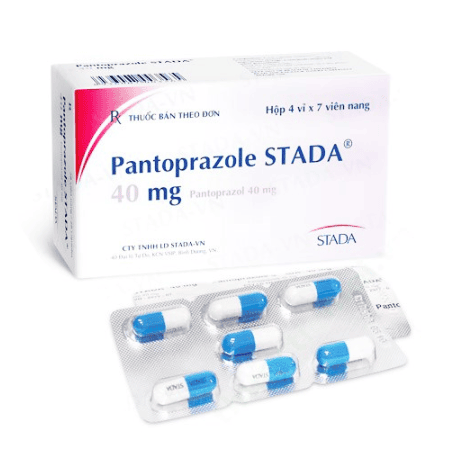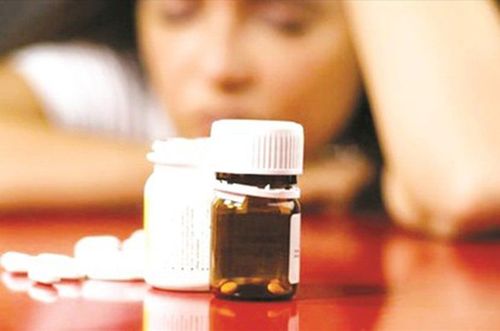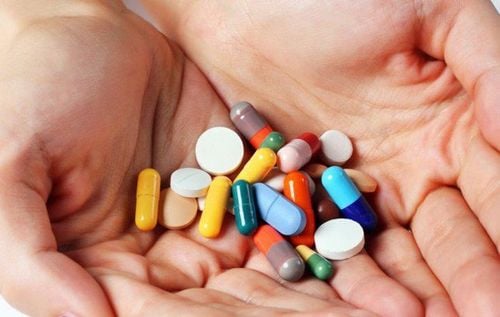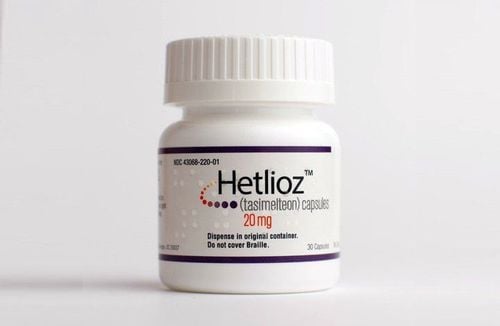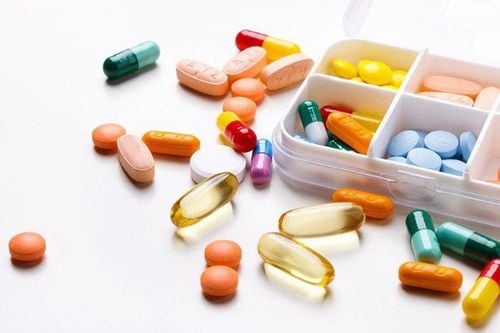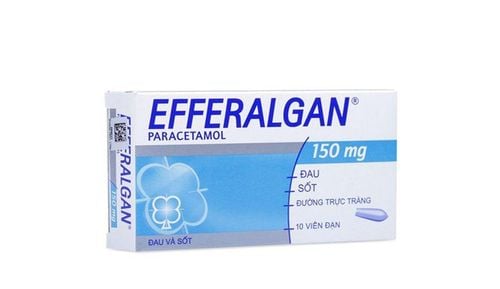This is an automatically translated article.
Taking antibiotics with alcohol is one of the things to avoid while taking antibiotics, because alcohol causes a lot of bad effects on the health of the patient and sometimes has dangerous interactions for the body.1. Can I drink alcohol while taking antibiotics?
Any alcohol intake during an infection is not recommended, as alcohol dehydrates the body, disrupts sleep, and impairs its ability to heal itself. In addition, certain antibiotics also cause some drug interactions with alcohol, affecting the health of users. Clinically, a few over-the-counter medicines may contain alcohol in their formulations, such as cough suppressants, cold and flu remedies. Therefore, it is necessary to check the product composition carefully before use. Prescription drugs can also contain alcohol, so patients need to discuss this with their treating doctor to make sure it is safest to take the drug.One of the most common interactions between alcohol and antibiotics is an interaction with the ingredient Metronidazole found in many antibiotics that treat infections of the stomach, intestines, skin, joints and lungs. The reaction that occurs between alcohol is Metronidazole is a reaction similar to Disulfiram with clinical symptoms such as nausea, vomiting, flushing, stomach cramps, headache, tachycardia, chest tightness, shortness of breath... In addition, other antibiotics such as Cefotetan, Cephalosporin, Tinidazole can also cause similar reactions when used with alcohol. Therefore, doctors have advised that patients should not drink alcohol while taking these drugs and only take it after stopping the drug for at least 72 hours. In addition, alcohol also depresses the central nervous system, so if alcohol is used together with Metronidazole, it will affect the central nervous system with specific manifestations such as drowsiness, dizziness, nervousness... Other stomach problems also occur when antibiotics are taken with alcohol such as nausea, vomiting, diarrhea, stomach pain...

Một số vấn đề về dạ dày khác cũng xảy ra khi dùng kháng sinh chung với rượu như buồn nôn, nôn, tiêu chảy, đau dạ dày...
2. Can I drink alcohol if I take antibiotics?
Alcohol does not usually affect the effectiveness of antibiotics in fighting bacteria, but the combination can cause some side effects that make patients uncomfortable. Therefore, taking antibiotics orally or intravenously is not recommended with alcohol. Alcohol is broken down in the liver by specific enzymes and drugs are also metabolized by the same enzymes. Therefore, if you put too much alcohol and too often into the body during antibiotic use, it will change these enzymes, causing the drug to be broken down in the wrong way in the body.More specifically, when putting too much alcohol in a short time into the body, the degrading enzymes will be inhibited, making the drug not metabolized as efficiently as it should. If you are using antibiotics, the reduction of drug breakdown will cause the antibiotic concentration in the blood to increase because it is not metabolized and excreted, leading to many toxicity and side effects of the drug. than. However, in chronic alcoholics, enzymes can also become more sensitive, causing the drug to break down so quickly that blood levels of the drug drop significantly. Therefore, if the antibiotic in the blood is too low, the treatment of infection in the patient will not be effective, thereby leading to antibiotic resistance.
Taking antibiotics with alcohol can lead to many adverse effects in treatment as well as increase the unwanted effects of the drug. Therefore, patients should be advised to avoid alcohol during treatment to maximize the effectiveness of the drug.
Best for the drug to work effectively in protecting health, the patient should take the drug according to the prescription of a pharmacist, a professional doctor. If you have any problems, please contact us for free advice and answers.
Please dial HOTLINE for more information or register for an appointment HERE. Download MyVinmec app to make appointments faster and to manage your bookings easily.




